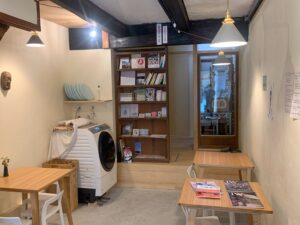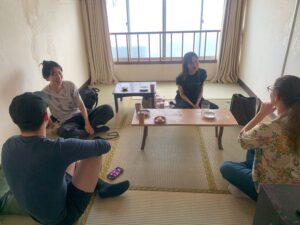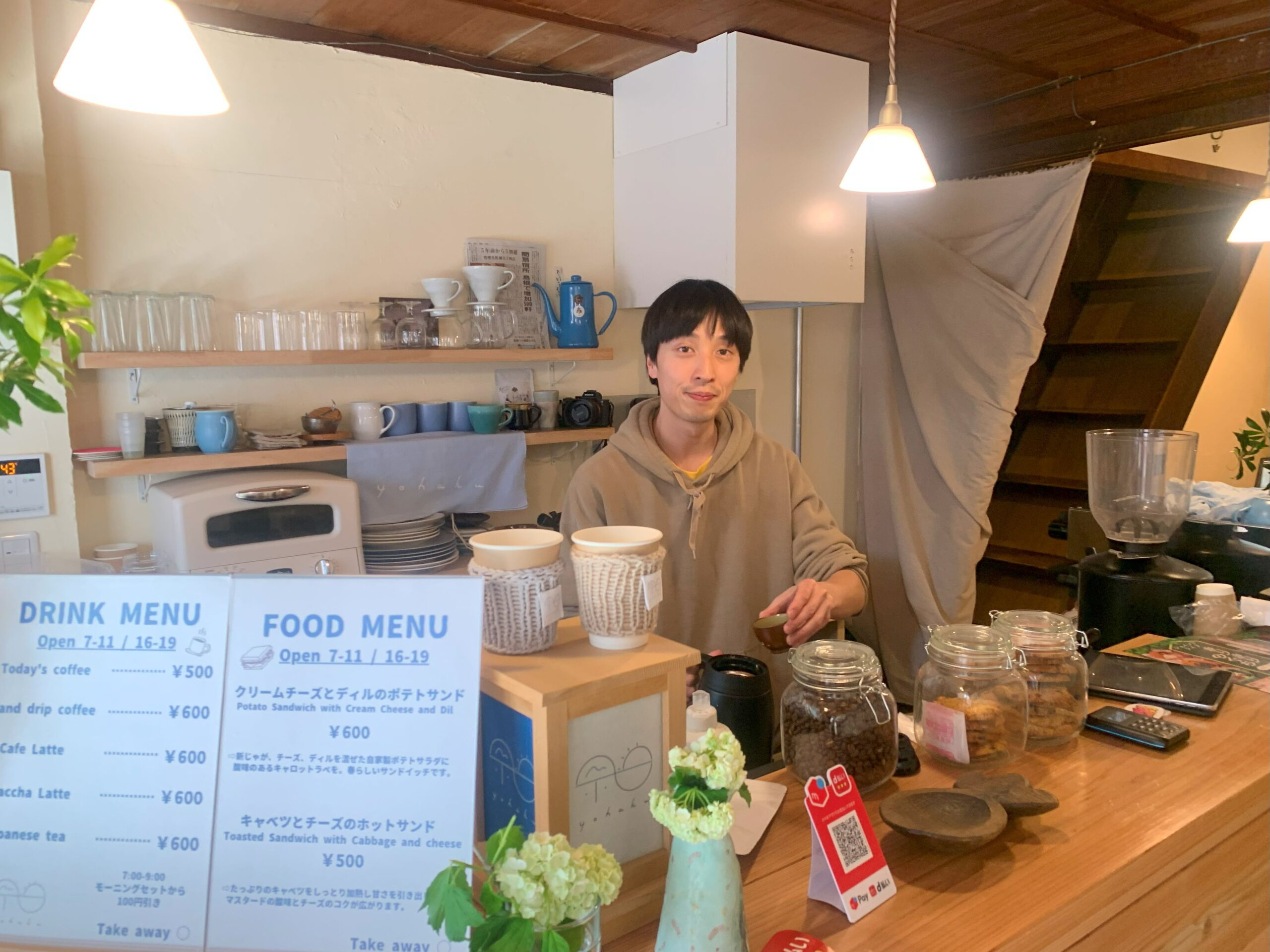In the heart of Matsue, a former barista now running a guesthouse is redefining hospitality. By blending tradition, coffee, and a community spirit, Yohaku isn’t just a place to stay—it’s where cultures meet and memories begin.
In recent years, small-scale accommodation has surged in popularity across Japan, particularly among Generation Z. Many young people became proprietors in the wake of the pandemic, which hit the restaurant and hotel sectors hard.
After observing this shift, Kohei Aoyama saw an opportunity to breathe new life into his hometown. With a background in coffee and a passion for cultural exchange, he converted an old Japanese house into a warm and welcoming retreat: Yohaku.
Tucked away in Wadami, a quiet neighbourhood in central Matsue, Yohaku is a lovingly restored traditional home near the time-honoured Mefu Shrine. The name ‘Yohaku’ refers to the quiet margin at the edge of a page, where new stories gently take shape. The ground floor, painted white like a blank canvas, features a natural wood kitchen and handmade furnishings. Upstairs, two tatami-style rooms overlook the historic rooftops of the castle town. The accommodation costs ¥12,000 for a twin room, which will be booked through Booking.com or Airbnb.

But Yohaku is more than just a place to stay. It serves as a cultural gathering point—a calm setting where locals and travellers come together through art, food and conversation. Nearly 30% of its visitors come from abroad, drawn by the chance to experience life in a heritage Japanese home while engaging with the spirit of local life in Matsue.
There are several ways to reach Yohaku: a two-hour flight from Tokyo’s Haneda Airport to Izumo, followed by a bus to JR Matsue Station; the scenic 12-hour journey aboard the Sunrise Izumo sleeper train; or a Shinkansen ride to Okayama, then a transfer to the Limited Express Yakumo. From Matsue Station, a local bus to Tenjin-machi and a short walk leads to Yohaku.
Kohei refers to Yohaku as a ‘community base’—with good reason. A local supplier freshly bakes bread for brunch. The interiors feature works by regional artisans. Music nights with local performers regularly bring people together through shared sounds and stories.
He officially opened Yohaku on 1st January 2025 after four years of barista training in Isemiya, a lively district of Matsue. In the café inside the house, he brews each cup of coffee by hand and serves carefully crafted sandwiches.
‘Kohei-san was immediately very welcoming and responsive. His presence in the café in the morning brought a sense of calm and comfort to the accommodation. He made us feel at home and was always attentive and considerate.
The accommodation is very comfortable, carefully renovated, and perfectly clean. You can feel the attention the host has put into it.
Kohei-san is very curious about learning about other cultures and meeting new people. We had a very pleasant 4-day stay thanks to his recommendations about the area and his company.
We were sad to leave and can’t wait to come back! Thank you for everything,’ said Camille from France (translated from French to English).
A graduate in English literature from Shimane University, Kohei began his career as an apprentice at a regional Ichibata Electric Railway before moving into the food and drink sector in Tokyo and Matsue.
‘I became interested in guesthouses as spaces for communication after staying at one in Tokyo,’ he recalls.
この投稿をInstagramで見る
One of Yohaku’s most distinctive features is its deep connection with the local area. It regularly hosts cultural events, such as exhibitions by local artists, book clubs, and bilingual language exchange meet-ups. These gatherings are particularly popular among Kohei’s Japanese and international peers, providing a space where creativity, culture and connection truly thrive.
‘Here I can have fun and improve my English skills,’ said Rico Nishimura, a participant in the language exchange programme.
‘Watching people connect made me want to build a place like that in Matsue. But keeping the dream going still requires some financial fine-tuning, so I’m trying out different ideas to make it sustainable, ’Kohei adds.

(Words by Takashi Saito)
Opening Hours
Morning (Fri–Mon): 7:00 AM – 11:00 AM
Café Time (Thu–Mon): 4:00 PM – 7:00 PM
Business Days
Open on Thursdays, Fridays, Saturdays, Sundays, Mondays, and public holidays (subject to change).
For the latest updates, please check Instagram.
Parking
No on-site parking. Please use the nearby paid parking lots.
How to get to Yohaku
🛫 By Plane + Bus (Fastest: approx. 3.5–4 hours)
-
Fly from Haneda Airport (Tokyo) to Izumo Airport (about 2 hours)
-
Take a bus from Izumo Airport to JR Matsue Station (approx. 30–40 minutes)
-
From Matsue Station, take a local bus to Tenjin-machi (approx. 10 minutes)
-
Walk a few minutes to Guesthouse Yohaku
🚆 By Sleeper Train (Scenic & Relaxed: approx. 12 hours)
-
Take the Sunrise Izumo sleeper train from Tokyo Station (overnight, approx. 12 hours)
-
Arrive at JR Matsue Station
-
Take a local bus to Tenjin-machi, then walk to Yohaku
🚄 By Shinkansen + Limited Express (Balanced: approx. 5–6 hours)
-
Take the Shinkansen from Tokyo to Okayama Station (approx. 3.5 hours)
-
Transfer to the Limited Express Yakumo to Matsue Station (approx. 2.5 hours)
-
Take a local bus to Tenjin-machi, then walk to Yohaku

